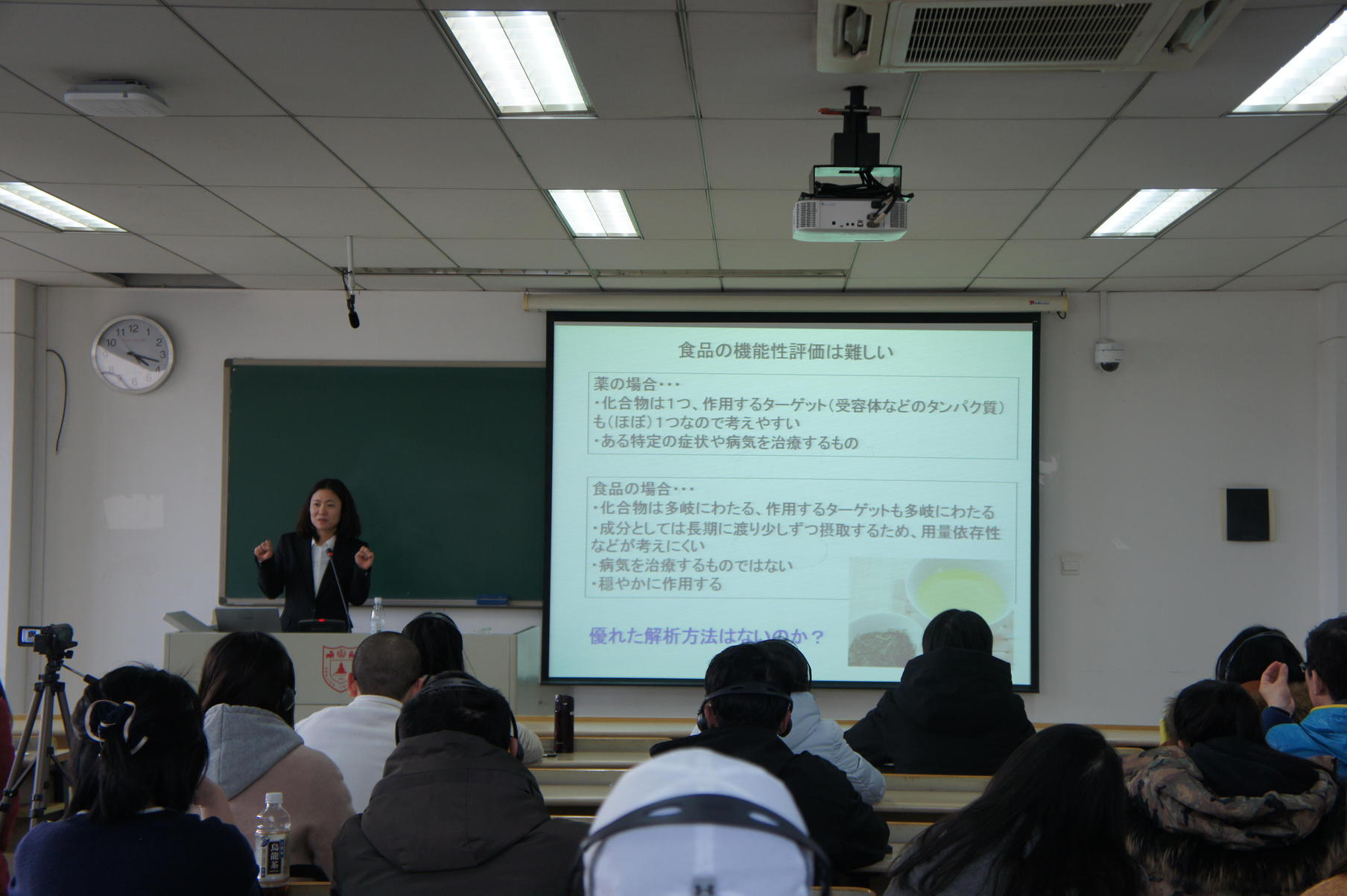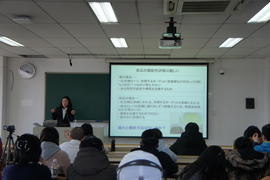I Want to Learn How to Think Beyond Academic Disciplines
Vol.2 2018.03.08 Shoko KOBAYASHI
Health and Food of Japanese People

Recently, Japanese people have problems with decreasing birthrates and an aging society. The expenses of health care for old people and the expenses of health care for nursing have increased and they strain the national finances. Making healthy life expectancy longer with the aid of food functionality is one of the measures to reduce such expenses. Healthy life expectancy is the survival period that people can maintain life and can be self-supporting without depending on continuous medical and nursing care on a daily basis. The gap between healthy life expectancy and the average life span of Japanese are: 9.02 years for men and 12.40 years for women. It is important for us to shorten this gap by means of extending healthy life expectancy. It is recommended that we should prevent life style related diseases such as cancer, stroke, high blood pressure and diabetes as well as dementia and immobility with the help of food functionality. The study on this kind of food functionality and the concept of “functional food” were the areas advocated by Japan first.
In this lecture, I am going to talk about the history and present situation of the study on food functionality in Japan. My current research task, which is how some foods may prevent or retard the development of dementia, will also be discussed.
- Instructor
-

- Shoko KOBAYASHI
- An Associate Professor of the Graduate School of Agricultural and Life Sciences/Faculty of Agriculture, the University of Tokyo Topics of study: 1. The absorption, metabolism, distribution and excretion of ingredients of functional nutritional foods 2. The interaction of nutrients within the body 3. Investigation of new absorption / excretion transporters of ingredients of functional food 4. Study on in vivo kinetics and functional expressions of polyphenol that have an effect of protecting against dementia
Post a Comment
- Other Lessons